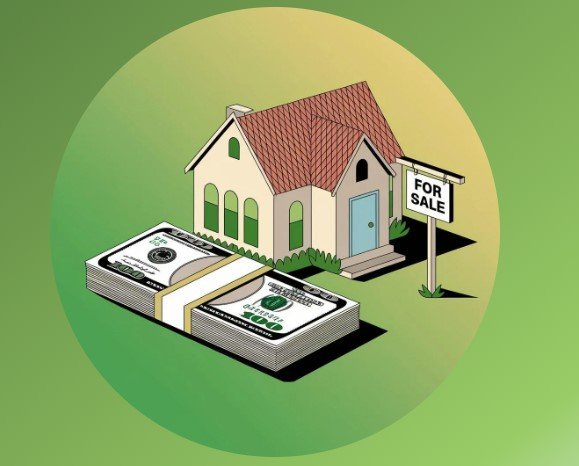8 Questions to Ask Before Choosing the Best Mortgage Refinance Rates

Look Beyond the Numbers for Real Savings
Refinancing can be a powerful financial move—but getting it right means knowing which questions to ask before locking in a deal. Rates may look good on paper, but the best mortgage refinance rates aren’t always the lowest number you see. They’re the rates that fit your goals, your budget, and your long-term plans without surprise fees or restrictions.
Here are 8 smart questions to ask before choosing a refinance rate—so you’re not just saving money now, but positioning yourself for future gains.
Is the Rate Fixed or Adjustable—and What’s the Long-Term Impact?
The difference between a fixed and adjustable rate (ARM) can be dramatic over time. Fixed rates stay the same throughout your loan term, while ARMs may start low but shift later based on market conditions.
Ask:
- Is this rate fixed for the entire loan term?
- If it’s adjustable, when does it reset—and by how much?
If you plan to stay in the home long-term, a fixed rate provides stability. The lowest rate today might not be the best rate tomorrow.
What’s the Annual Percentage Rate (APR), and How Is It Different from the Interest Rate?
The APR gives you a more complete picture of your loan’s cost because it includes lender fees, closing costs, points, and other charges. A lower interest rate can look appealing—but if the APR is significantly higher, that loan might cost more in the end.
Ask:
- What’s the APR for this refinance offer?
- Which fees and costs are included in that number?
Use APR as your comparison baseline across multiple lenders—not just interest rates alone.
How Much Will I Pay in Closing Costs?
Refinancing is not free. Lenders typically charge 2–6% of the loan amount for closing costs. These might include appraisals, underwriting, title searches, and more.
Ask:
- What are all the expected closing costs?
- Can I roll them into the loan—or will I need to pay upfront?
Some lenders offer “no-closing-cost” loans that trade upfront fees for slightly higher rates. You’ll want to run the math and decide which scenario benefits you over time.
What’s My Loan-to-Value Ratio, and Will It Affect My Rate?
Your loan-to-value (LTV) ratio compares your loan balance to your home’s appraised value. The more equity you have, the lower your LTV—and typically the better your rate.
Ask:
- What is my current LTV?
- Will I need a new appraisal to determine home value?
Homeowners with at least 20% equity often qualify for the best mortgage refinance rates and may be able to drop private mortgage insurance (PMI), creating extra savings.
How Does My Credit Score Affect My Refinance Rate?
Even small shifts in your credit score can significantly impact the rate you’re offered. The highest-tier rates usually go to borrowers with scores of 740 and above.
Ask:
- What credit score does this rate assume?
- Can I qualify for a better rate if my score improves?
If you’re close to the next credit tier, consider holding off your refinance while you pay down debt or resolve report errors for a potentially better deal.
Are There Discount Points Involved—and Should I Use Them?
Points are fees you pay upfront to reduce your interest rate. One point equals 1% of your loan and typically reduces your rate by about 0.25%.
Ask:
- Does this quoted rate include discount points?
- What’s the break-even period if I buy points?
If you plan to stay in your home for many years, buying points can save you money over time. Otherwise, you might be paying more upfront than you gain in savings.
How Long Is the Rate Lock—and Will It Protect Me During the Process?
A rate lock guarantees your rate won’t change between your application and closing—even if the market shifts. It’s a vital protection when refinancing in a volatile interest climate.
Ask:
- How long is the rate lock period?
- What happens if closing is delayed?
Look for a lock period that covers your timeline. Some lenders offer extensions, while others may reset the rate based on new market conditions.
Will My Monthly Payment Actually Go Down—and for How Long?
A lower rate doesn’t always mean a lower payment—especially if you’re shortening your loan term or rolling closing costs into the principal. Also consider whether payments might rise if you’re refinancing an ARM or opting into a balloon payment structure.
Ask:
- What will my actual monthly payment be?
- Are taxes, insurance, or HOA fees included in that estimate?
This is the number you’ll live with. Make sure it fits your budget and long-term financial plans—not just your refinancing dreams.
Final Thoughts: Smart Questions Lead to Smart Savings
Finding the best mortgage refinance rates means looking beneath the surface. Ask these eight questions to uncover hidden fees, understand real costs, and align your new loan with your financial goals. Don’t settle for surface-level savings—dig deeper, compare offers, and negotiate with clarity.
Your home is a long-term investment, and refinancing should support that vision—not just give you short-term relief. When you ask smarter questions, you get stronger results—and a refinance deal that truly pays off.
